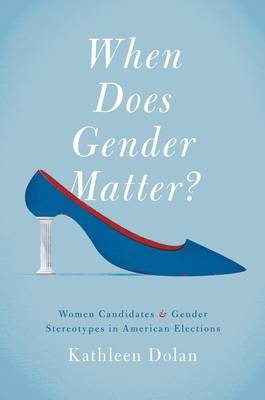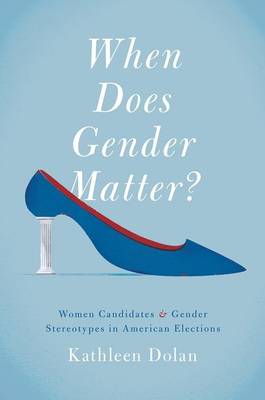
- Afhalen na 1 uur in een winkel met voorraad
- Gratis thuislevering in België vanaf € 30
- Ruim aanbod met 7 miljoen producten
- Afhalen na 1 uur in een winkel met voorraad
- Gratis thuislevering in België vanaf € 30
- Ruim aanbod met 7 miljoen producten
Zoeken
When Does Gender Matter?
Women Candidates and Gender Stereotypes in American Elections
Kathleen Dolan
Paperback | Engels
€ 62,95
+ 125 punten
Omschrijving
Scholars and political observers raise concerns that the sex of a woman candidate can complicate her chances of success. This perspective is primarily motivated by concerns about the negative impact of voter gender stereotypes. Instead, this book demonstrates that gender stereotypes have little impact on voter decisions involving women candidates.
Specificaties
Betrokkenen
- Auteur(s):
- Uitgeverij:
Inhoud
- Aantal bladzijden:
- 264
- Taal:
- Engels
Eigenschappen
- Productcode (EAN):
- 9780199968282
- Verschijningsdatum:
- 1/09/2014
- Uitvoering:
- Paperback
- Formaat:
- Trade paperback (VS)
- Afmetingen:
- 155 mm x 234 mm
- Gewicht:
- 340 g

Alleen bij Standaard Boekhandel
+ 125 punten op je klantenkaart van Standaard Boekhandel
Beoordelingen
We publiceren alleen reviews die voldoen aan de voorwaarden voor reviews. Bekijk onze voorwaarden voor reviews.








